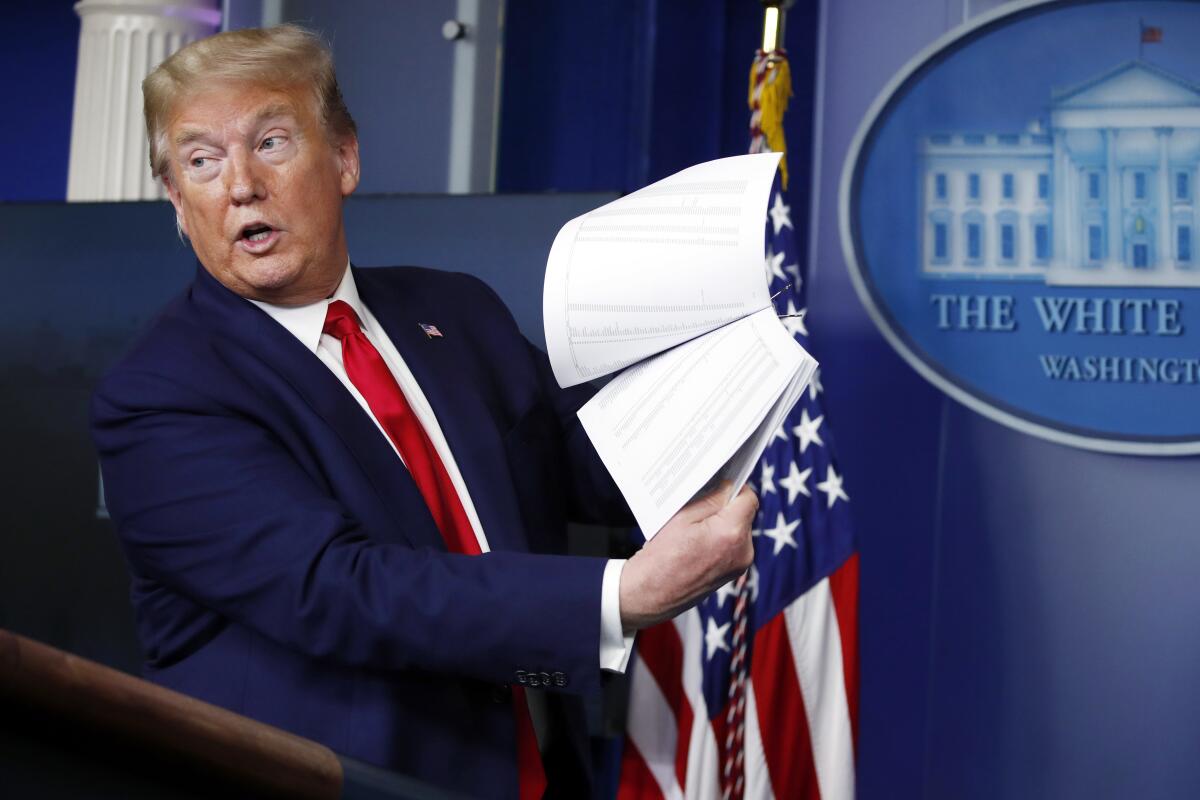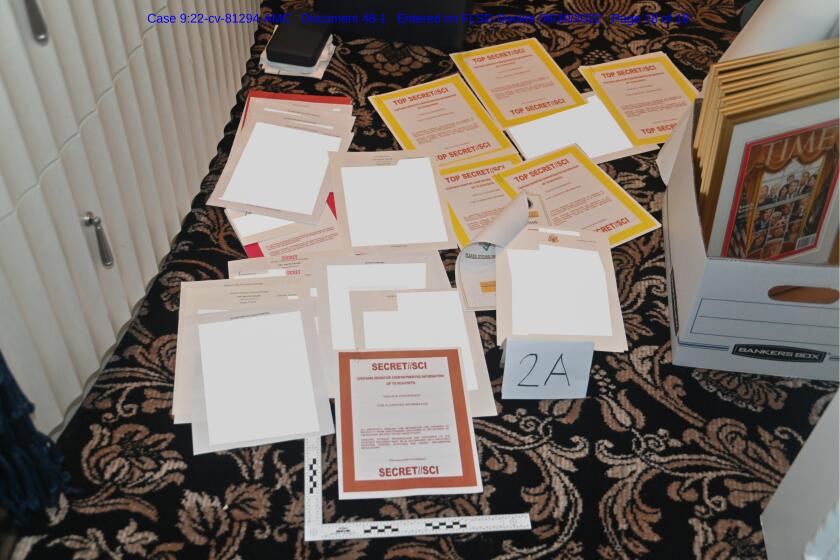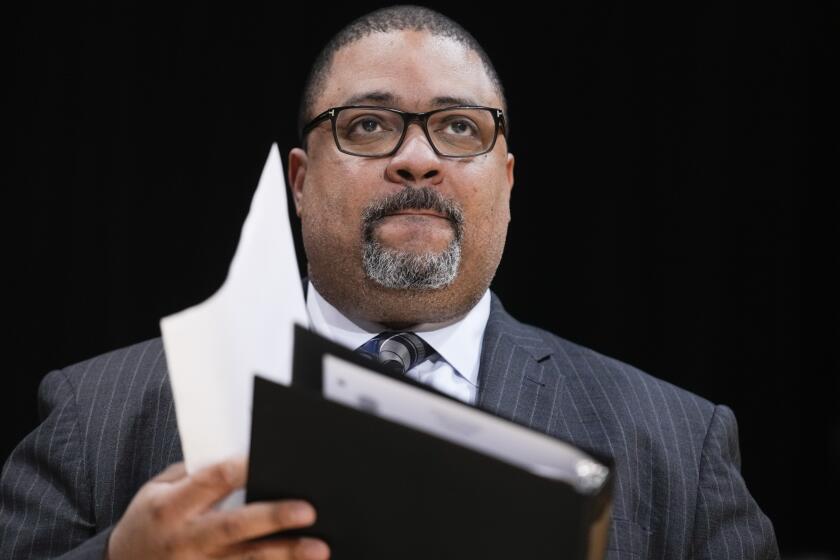The DOJ’s classified documents case was already dire for Trump. Now it looks even worse

- Share via
We continue to receive intriguing but incomplete reports about what special counsel Jack Smith was doing a few weeks ago. And while they concern the details of an already obviously powerful case of obstruction and other charges against Donald Trump in the federal classified documents case, they underscore the impression that the case Smith is preparing will be overwhelming.
The latest revelations about the investigation go to the epicenter of the factual case for obstruction of justice and to the heart of Trump’s anticipated defenses.
We learned Tuesday that Trump lawyer Evan Corcoran testified to a federal grand jury that he was “waved off” searching Trump’s office while attempting to comply with a subpoena for all classified documents in the former president’s possession. The instruction kept Corcoran from finding more than 100 classified documents that the FBI later seized in a court-ordered search, some of them in the office.
Corcoran’s testimony some weeks ago indicated that he was therefore “materially misled” when he was steered away from Trump’s office, the Guardian reported.
But by whom? That is the screaming question that the report leaves unanswered.
The special counsel’s investigation of the former president’s Mar-a-Lago trove has taken longer than some expected, but it appears to be a strong case.
You can bet, however, that Smith has an answer. The passive voice — “was waved off,” “was materially misled” — represents the limits of the reporting, not of the testimony. Corcoran, who is recused from the case as Trump’s attorney and must be careful to avoid being ensnared in the same net as his former client, was surely pressed on who exactly waved him off.
And regardless of whether the message was delivered by one or another Trump aide, it is quite likely that the command can be traced to the ex-president. Who else would have the authority to issue such an instruction?
This is potentially the crux of the obstruction case, the moment when Team Trump — and probably Trump himself — broke the law by deciding not to comply with the subpoena and lie about it.
The partial report of Corcoran’s testimony presages a much more detailed and damning account at trial. It will be augmented by the attorney’s 50 pages of contemporaneous notes, which a court has already ruled are probable evidence of criminal conduct by Trump. Corcoran is likely to testify that (a) he told Trump he could not retain any documents with classified markings and (b) he understood that Trump himself had instructed that he need not look in the former president’s office.
Coming from the mouth of Trump’s own lawyer, that’s killer testimony.
New York prosecutor Alvin Bragg’s investigation is just the beginning of Trump’s legal exposure. Charges in Georgia and from Special Counsel Jack Smith also loom.
Yet another revelation came Wednesday, when CNN reported the existence of an audio recording of a 2021 meeting in which Trump acknowledges that he retained a classified document about a potential attack on Iran. Equally important, he is heard suggesting that he can’t legally share the information with the people he was talking to.
Such a recording would demolish the far-fetched defense Trump has trotted out in public to the effect that he had untrammeled authority to declassify any documents he took. On the contrary, he reportedly admits on the recording that he has classified documents that can’t be legally disseminated — refuting any claim that they were automatically declassified by his having taken them.
The Guardian also reported that Trump says on the recording that he should have declassified the document, further undermining Trump’s claimed powers of automatic declassification.
Even if Trump was really waving a blank piece of paper at his interlocutors and only pretending it was a classified document, as some commentators have suggested, his own words would demonstrate his awareness of the legal limits.
Team Trump has offered no response to the merits of any of these reports. It has only assailed them as selective leaks from the government, which seems unlikely. That would be a serious and risky transgression by a prosecutor known for playing by the book, and it would accomplish little for the special counsel at this late stage of the case. The accounts read more as if they came from witnesses or people they have spoken to, which is one reason they are incomplete.
The leak accusation is a pale distraction from the bottom line of the reports: that the grand jury heard compelling evidence that the former president probably orchestrated the failure to comply with the subpoena and knew his claims of plenary authority over classified documents were bunk.
Harry Litman is the host of the “Talking Feds” podcast. @harrylitman
More to Read
A cure for the common opinion
Get thought-provoking perspectives with our weekly newsletter.
You may occasionally receive promotional content from the Los Angeles Times.









